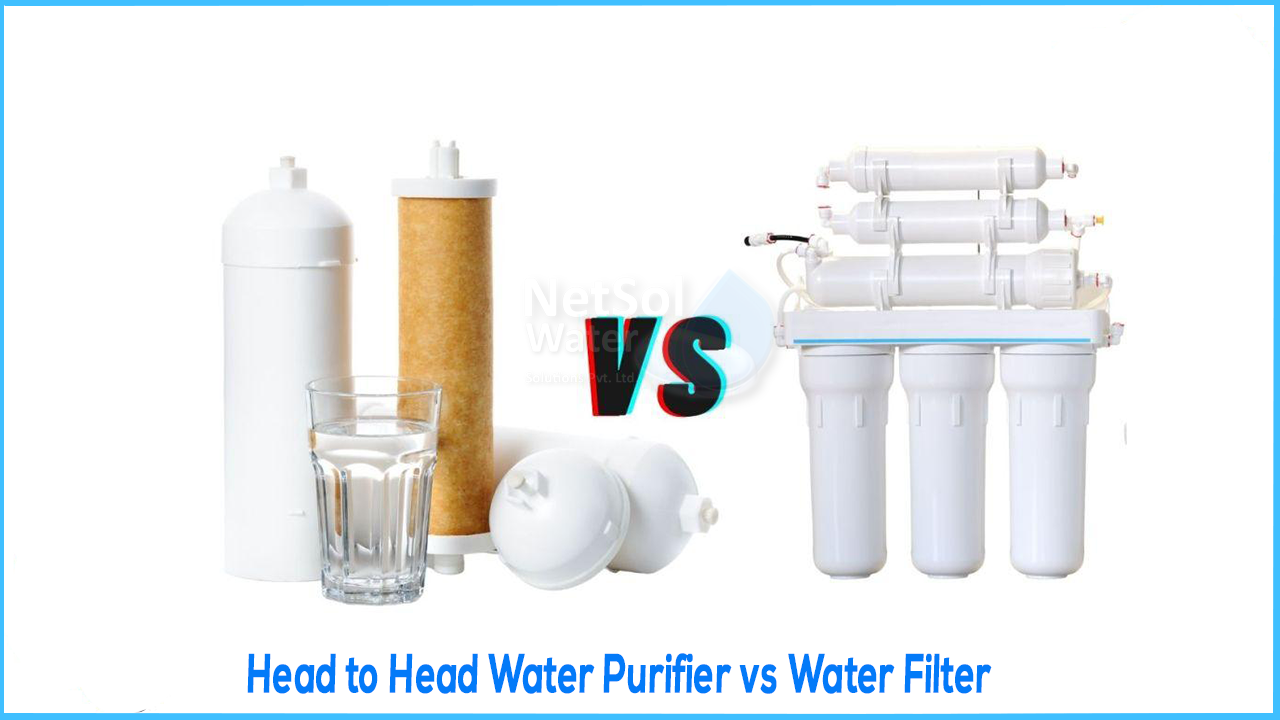It is said that water is life and we all need clean and pure water for our daily needs. When it comes to pure water, there is always more caution exercised in order to ensure total safety and purity. Usually, the terms water purifiers and water filters are used interchangeably when it comes to the water purification process. Consumers often think that both these terms mean the same and can be used in the common parlance.
- 1. TYPES OF IMPURITIES REMOVED
Water Filters
Water Filters use physical barriers or filters as main the process of filtration. Water filters are suitable to remove physical Impurities like dust, silt, sediments, clay and other suspended particles and few microbiological organisms like bacteria and viruses. When equipped with carbon filters, they can take care of the odour and chlorine present in water as well. However, these water filters may not be effective in removing dissolved solids, heavy metals, and other chemical pollutants.
Water Purifiers
Water purifiers, on the other hand, in addition to removing the physical impurities are also highly effective in removing excess TDS, heavy metals, pesticides, and harmful chemical impurities from water. As our drinking water passes through old, rusty pipes, it gets contaminated by the time it reaches our home and consuming such water can pose threat to our health and well-being. Hence, it’s recommended to choose a good quality water purifier for most effective filtration.
- 2. LEVELS OF PURIFICATION
Water Filters
Water filters provide a basic form of water filtration. It uses 2-3 layers of filtration to provide clean drinking water. These filters are fitted one after another and as water passes through these, a certain kind of impurity gets removed through the process of it. But if your water tastes salty, or contains heavy metals and harmful chemicals, water filters are not suited for those needs.
Water Purifiers
Water purifiers on the other hand use a much more sophisticated process for purification of impure water. The most evolved technologies being RO+UV and RO+UV+MF. These water purifiers come with advanced stages of purification that have multiple filters and layers to purify water from all kinds of sources. After removing these impurities, water purifiers ensure that the textures, taste, and consistency of water is enhanced. This makes water perfectly safe and ideal to drink.
- 3. SUITABILITY
Water Filters
In areas where your source of water is natural and contains lesser impurities or you’re sure of the quality of your water being treated by the local government at its source, you can choose to go for a water filter.
Water Purifiers
But if you are in urban areas or centres where there can be multiple sources causing water pollution, it is advisable to use a water purifier. An RO water purifier is most suited as it provides the most effective form of water purification.
- 4. ADVANCED FEATURES
Water Filters
Being a comparatively simpler device, a water filter comes with basic features. It requires more manual intervention during its life. A non-electric water filter requires to be filled with water from time to time to provide clean drinking water.
Water Purifiers
They have smart alert systems that give you an alert for filter replacement, display water purity levels, have tank full indicators and even signal in case of any electrical issues. These advanced technologies ease our lives and reduce the hassles of all kinds of manual interventions.




